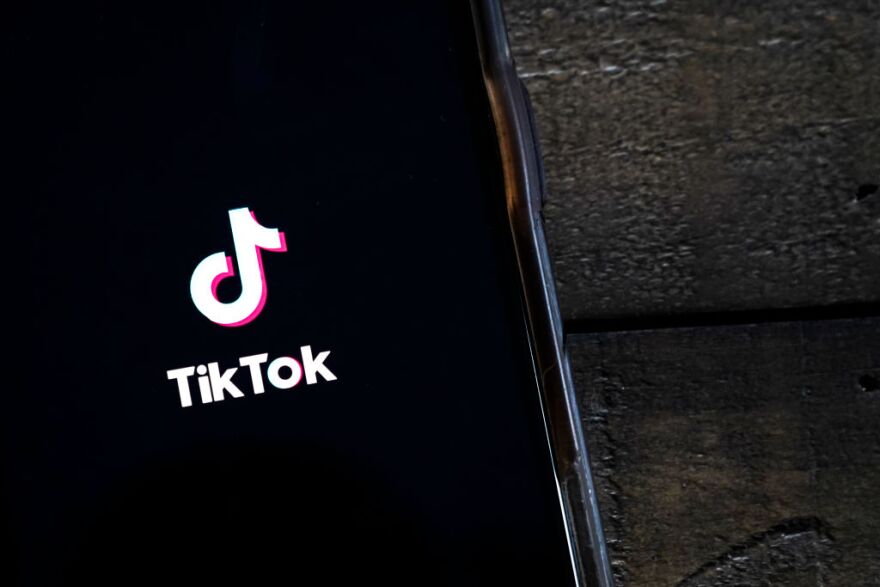Saying Montana’s law banning TikTok in the state oversteps the state’s powers and infringes on people’s constitutional rights, a federal judge in Missoula on Thursday granted a preliminary injunction temporarily prohibiting the state from enforcing the law set to take effect Jan. 1.
U.S. District of Montana Judge Donald Molloy found the law banning TikTok in Montana, passed and signed through Senate Bill 419 this spring, likely violates the U.S. Constitution in multiple ways.
“Because plaintiffs have the better arguments, they have demonstrated a likelihood to succeed on the merits,” Molloy wrote in his order granting the injunction.
The case challenging the TikTok ban was consolidated from two cases. Plaintiffs include TikTok itself and a group of creators who use the platform, who are challenging the new law on grounds it violates the First Amendment, Supremacy Clause and Commerce Clause of the U.S. Constitution.
The state said at the injunction hearing in the case on Oct. 12 that the law does not implicate the First Amendment because the state has the power to police such things and that it only has an indirect effect on interstate commerce.
Molloy found in his order that TikTok users could be deprived of communicating by their preferred means of speech if the law were allowed to take effect, and the company’s speech itself – presenting others’ speech through video compilations – also fell within First Amendment protections.
He said since the law banning TikTok in Montana is not narrowly tailored nor does it leave open alternatives for communication, it does not pass intermediate scrutiny – a prong of obtaining a preliminary injunction in this case.
Molloy also found that the plaintiffs “have the better argument” when it comes to whether the state has an interest in banning TikTok. The plaintiffs had argued the state said it wanted to protect Montana children from dangerous content and protect national security interests from the Chinese company. But the state, in the litigation, had claimed the purpose of the bill was protecting Montanans’ user data.
“SB 419 explicitly bans TikTok because of its direct connection to a specific foreign nation,” Molloy wrote. “At best, the State’s comparison is weak. At worst, it is reflective of the pervasive undertone of anti-Chinese sentiment that permeates the State’s case and the instant legislation.”
He said the state had also failed to provide evidence to support its alleged interest of consumer protection, that the state does not have an important government interest in regulating foreign affairs and had not shown the consumer protection interest for the bill, and thus, the plaintiffs would be likely to succeed in their argument.
Molloy also took the Legislature to task when considering whether SB 419 was narrowly tailored because it only banned TikTok and not other major social media companies — even noting comments made by Democrats during a House hearing on the bill to that same point.
“Because the Legislature used an axe to solve its professed concerns when it should have used a constitutional scalpel, plaintiffs are correct,” Molloy wrote.
Molloy said his analysis doesn’t keep the state from leading in the realm of consumer protection, but that the law does not pass immediate scrutiny and that he believes plaintiffs have shown it is “unlikely the law will be able to do so.”
Molloy also agreed with the plaintiffs that the law’s main purpose is to make a foreign affairs statement, not to protect consumers, writing that the statute’s language and political context surrounding it “do not support that conclusion.”
He also agreed that Montana is likely trampling on U.S. foreign policy with the law, that the Defense Production Act likely preempts the law, and that the law likely violates the Commerce Clause because it discriminates against China in commerce.
And finally, he sided with the plaintiffs on the First Amendment claim, arguing it would harm business for both TikTok and the creators, who thus would be likely to suffer irreparable harm.
“SB 419 violates the Constitution in more ways than one, thus the balance of equities ‘tips sharply’ in plaintiffs’ favor. While there may be a public interest in protecting Montana consumers, the State has not shown how this TikTok bill does that,” Molloy wrote. “Instead, SB 419 oversteps state power and infringes on the Constitutional rights of users and businesses. In conclusion, the balance of equities and the public interest weigh in plaintiffs’ favor.”
A TikTok spokesperson said the company was happy with Molloy’s order.
“We are pleased the judge rejected this unconstitutional law and hundreds of thousands of Montanans can continue to express themselves, earn a living, and find community on TikTok,” the spokesperson said.
Ambika Kumar, one of the attorneys for the plaintiffs, said in a statement: “Our clients stood up to the State of Montana to defend the rights and livelihoods of 300,000 TikTok users across Montana. We’re delighted that the judge recognized that the ban is unwarranted and unconstitutional.”
Emilee Cantrell, a spokesperson for the Attorney General’s Office, pointed the Daily Montanan to a statement she provided to NBC News in which she said the matter was only preliminary at this point.
“The judge indicated several times that the analysis could change as the case proceeds and the State has the opportunity to present a full factual record,” she told the news outlet. “We look forward to presenting the complete legal argument to defend the law that protects Montanans from the Chinese Communist Party obtaining and using their data.”
Molloy’s order also notes there are similar regulatory cases pending before the U.S. Supreme Court and other courts. His injunction enjoins the Jan. 1, 2024, effective date of the law until a final determination is made in the case.
- - -
This story was originally published by the Daily Montanan.

